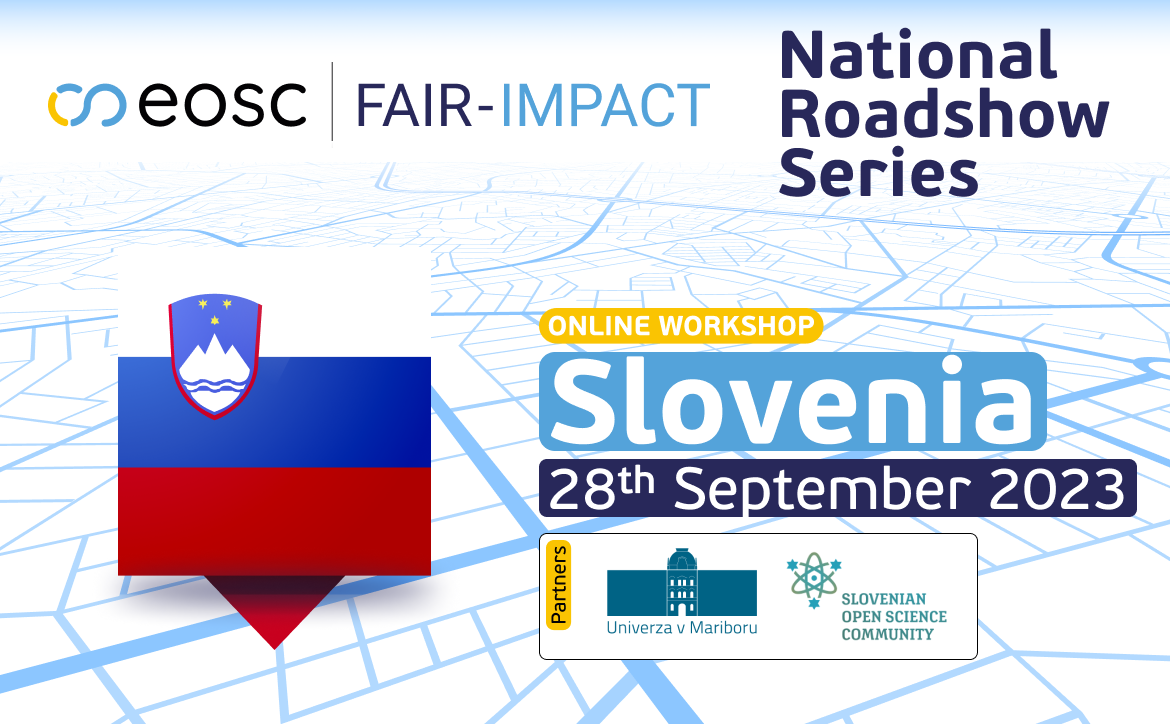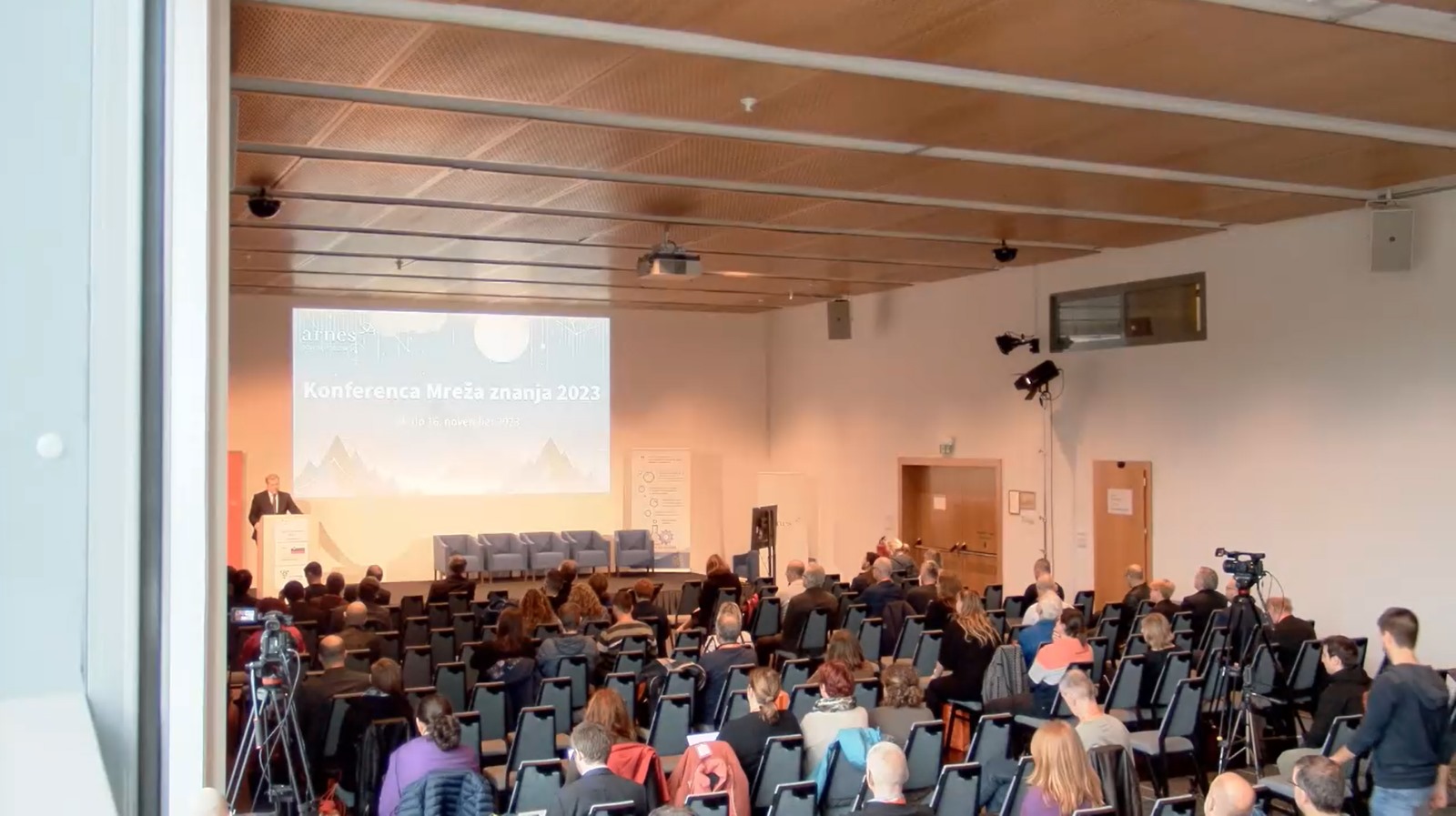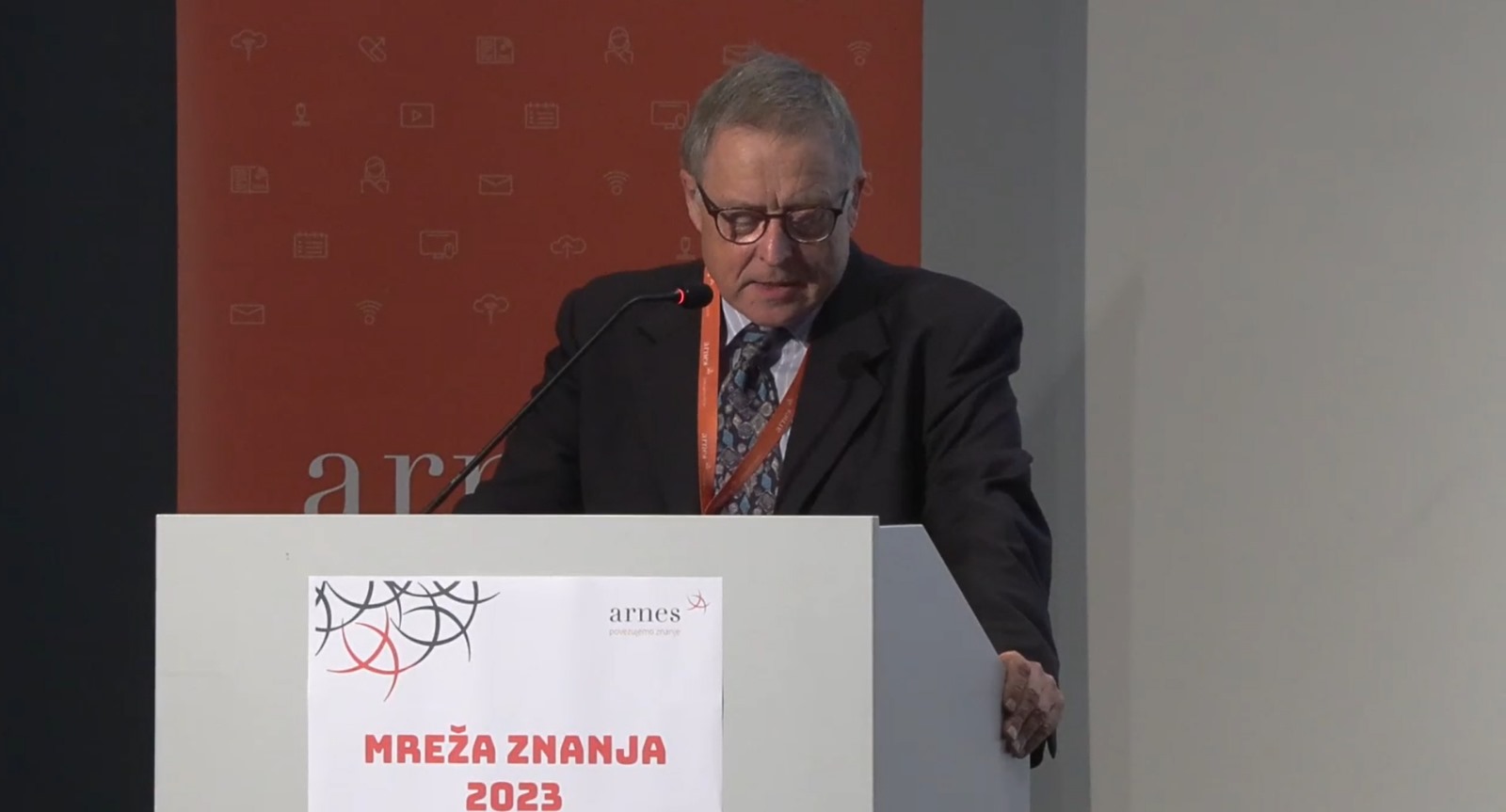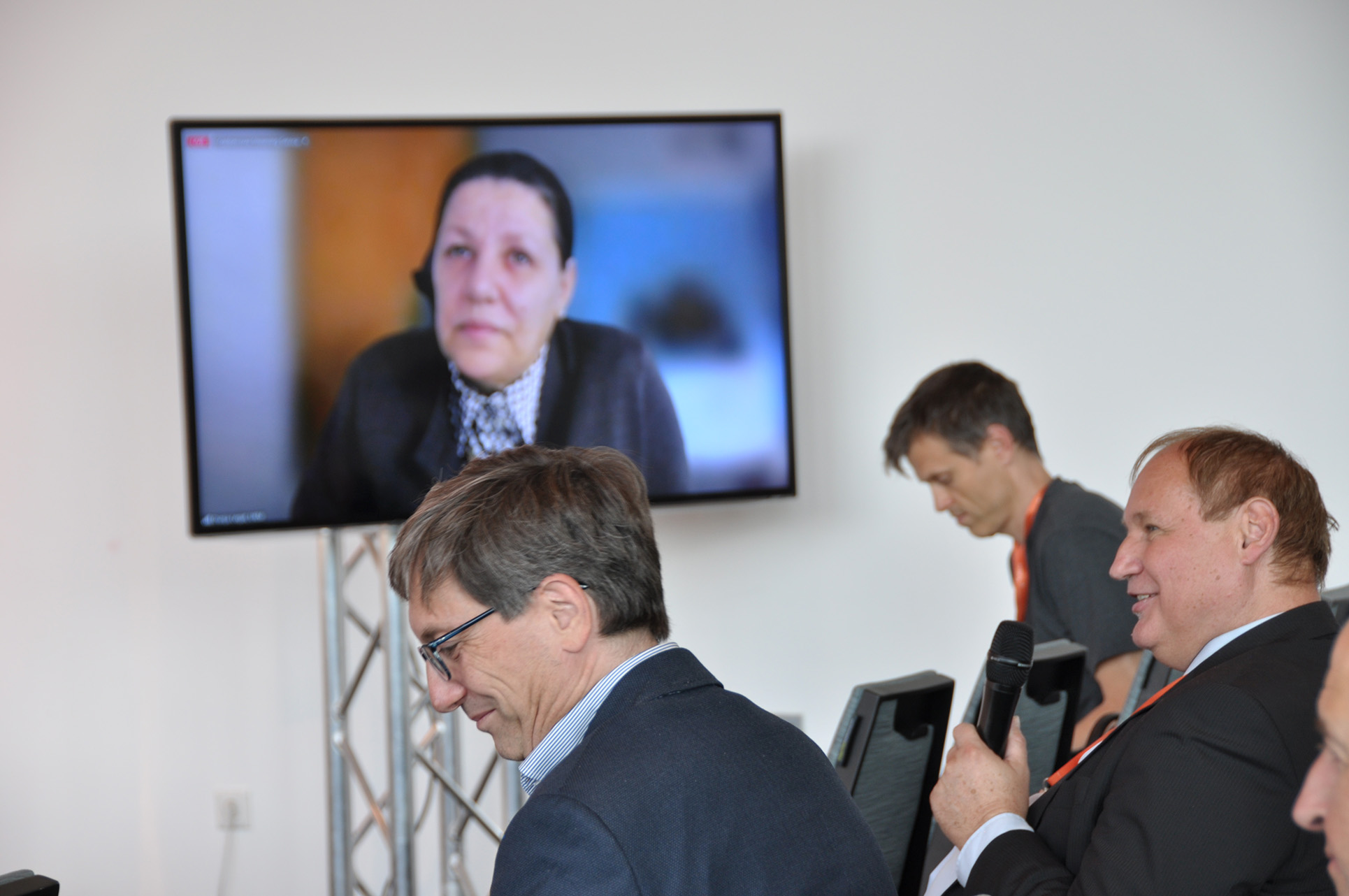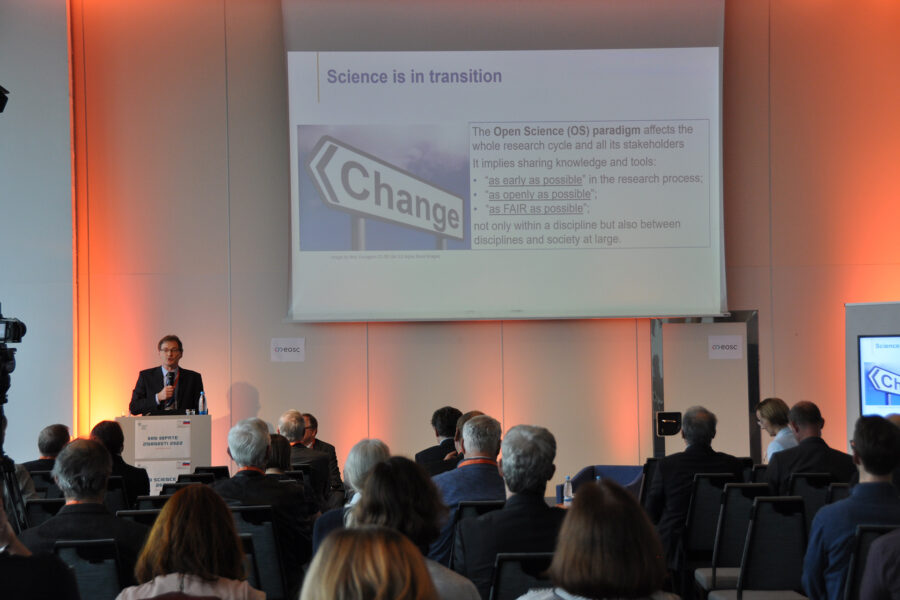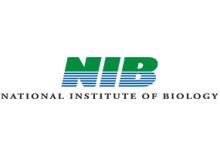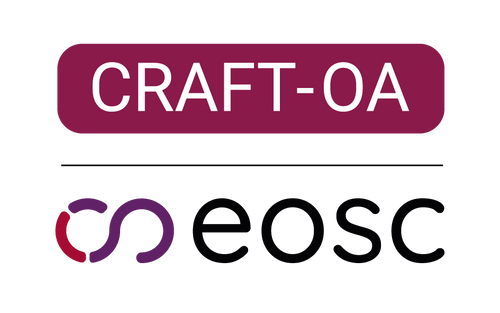
Slovenia
Overview
European Commission

Mandated Organisation

EOSC Steering Board representatives
Slovenia laid the foundations to implement the Open Science principles in 2015, when it became a theme in the National Strategy of Open Access to Scientific Publications and Research Data in Slovenia 2015−2020. These principles have been written into law through the ZZrID (Scientific Research and Innovation Activities Act) regulates Open Science.
Also, in the new Resolution on the Slovenian Scientific Research and Innovation Strategy 2030 (ZRISS 2030), Open Science is the central theme of Goal 6.2: Open Science for Improving the Quality, Efficiency and Responsiveness of Research. This Resolution has been adopted by the National Assembly on 23 March 2023.
Current engagement of Slovenia in EOSC
SSOZ organises activities to discuss and share experiences and increase competences of Slovenian stakeholders, including:
- Engagement of organisations into the EOSC Association
- Organisation of public webinars/events to inform national stakeholders about the EOSC latest development, collect feedback, discuss EOSC-related topics
Academic and Research Network of Slovenia (ARNES)
Slovenia’s EOSC Mandated Organisation, ARNES is the public provider of network services to research, educational and cultural organisations, and enables them to connect and establish collaborations with others, in Slovenia or abroad. The ARNES network links over 1500 Slovenian organisations and makes its services available to nearly 250,000 scientists and science-related staff.
ARNES builds, maintains and manages infrastructure for universities, institutes, research laboratories, museums, schools, databases and digital libraries. It offers the following services through its network; web and e-mail servers; network services; multimedia services; AAI; security; registry; as well as services for individuals (webmail, hosting of personal websites, etc.). ARNES cooperates with other EU national networks in projects to test, develop and introduce new Internet protocols and services. It also provides services that are not offered by commercial organisations but which are essential to the operation of the Internet in Slovenia.
ARNES cooperates with Slovenia’s Ministries of Education, Science and Sport, and of Public Administration, as well as with other institutions, on a project basis. It also plays an active role in the EC projects SAFE-SI and Spletno oko, under the European Safer Internet action plan.
Contact e-mail address: arnes@arnes.si
Slovenian Open Science Community (Slovenska Skupnost Odprte Znanosti)
The Slovenian national structure, started in 2021, brings together national stakeholders of Open Science in a comprehensive and transparent arrangement and establish a single, complementary Open Science system for services, tools, infrastructures and education.
SSOZ wants to include among its members organisations from all corners of the research community (Higher education and research institutions, research and e-Infrastructures, researchers, policy-makers and research funders, libraries, publishers, scientific and professional associations, community/civic science stakeholders).
SSOZ promotes the dissemination, sharing and reuse of knowledge through Open Access, and delivers training to develop competences to practise Open Science. By pooling research services and data infrastructures, SSOZ promotes the sharing of resources, services and joint participation in domestic and international Open Science projects.
SSOZ’s website is currently only available in Slovenian. Contact: info@odprtaznanost.si
Slovenia Open Science portal is a recent addition to the landscape tha tprovides access to resources from Slovenian organisations.
National Events
National Tripartite Event: Slovenia
Following last year’s successful event, we invite you to join us again for the Open Science Day, taking place on the 3rd and 4th of December 2024. The first day, December 3rd, will focus on international...
Policies
- The “Law on scientific research and innovation“(“Zakon o znanstvenoraziskovalni in inovacijski dejavnosti” or ZZrID) establishes that research activities that received at least 50% of public co-financing have to provide Open Access to all peer-reviewed scientific publications and research data. In Particular open research data must be published or otherwise made accessible in a way that enables their findability, accessibility, interoperability and reuse, in line with the FAIR principles. Scientific journals of publishers based in Slovenia and neighbouring countries (Slovenian: v zamejstvu) which contain peer-reviewed articles and are fully financed by the state must provide Open Access to their content.
- Institutional policies: Research data created and collected for the doctoral dissertations must be published (or be otherwise accessible) according to the FAIR principles Researchers must at least add the reference to the data via freely accessible metadata for the data centre catalogue to enable findabilirt.
- The Digital Preservation Policy of the Social Science Data Archives: determines the rules, roles and responsibilities, and the system of monitoring data management in the Slovenian Social Science Data Archives, to assure permanent accessibility of archives and holdings and thus present the archive as a trustworthy data repository in the eyes of its users, data providers, and funders.
The Slovenian government has published in May 2023 the “Action plan for open science” to implement the “Resolution on the Slovenian Scientific Research and Innovation Strategy 2023“. The action plan describes measures to fulfil goal 6.2: Open Science to improve research quality, efficiency, and responsiveness including:
- 6.2.1: Effectively manage and finance the development of the national Open Science ecosystem and ensure its coherence with international standards, develop national structures and infrastructures related to Open Science, and foster their integration into international networks and infrastructures
- 6.2.2: Introduce modern approaches to the evaluation of scientific research in accordance with Open Science principles e.g. DORA -San Francisco Declaration on Research Assessment, Leiden Manifesto for research metrics, (European Research Area and Innovation Committee Guidelines) to increase the quality and impact of research.
- 6.2.3: Ensure that the results of scientific research are consistent with the FAIR (Findable, Accessible, Interoperable, and Reusable) principles, and that full and immediate Open Access is provided (subject to justified exceptions).
- 6.2.4: Establish a national Open Science community to implement and monitor Open Science in Slovenia, as well as its integration into ERA and beyond.
- 6.2.5: Promote the development of citizen science and public involvement in scientific research.
- 6.2.6: Promote the development of national scientific publishing that will operate according to the principles of Open Science.
EOSC in Practice
Embracing the principles of transparency, reproducibility, and accessibility, these examples highlight the innovative approaches adopted by researchers across various disciplines. From open data sharing and collaborative platforms to pre-registration and open peer review, these practices enhance scientific integrity and contribute to the advancement of knowledge.
People
-
Marko Bonac
Director of ARNES, EOSC-Mandated Organisation for Slovenia at the EOSC Symposium on 20-22 September 2023 in Madrid.
-
NTE Slovenia 2023
14 November 2023, Ljubljana, Slovenia -
NTE Slovenia
News from Slovenia
Members and Observers from Slovenia
EU Projects
Please find here the EOSC-related projects where members from this country are involved as partners.













































